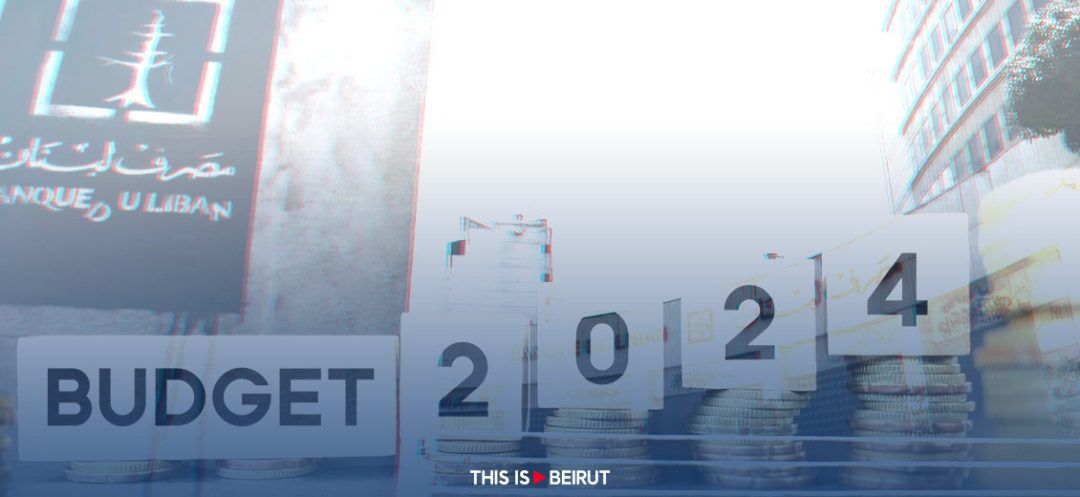
The issue of the bank dollar exchange rate remains unresolved. Parliament withdrew from this task during the review of the 2024 Budget, while the Central Bank of Lebanon (BDL) is taking its time to decide on the matter.
The acting governor of the Central Bank of Lebanon, Wassim Mansouri, is expected to arrive in Beirut from Paris on Tuesday evening. He is scheduled for consecutive meetings on Wednesday with Caretaker Prime Minister Najib Mikati and Caretaker Minister of Finance Youssef el-Khalil to discuss the bank dollar exchange rate.
As for banking sources interviewed by This is Beirut, a definitive decision on this matter is expected next week. However, it has been reported in this regard that the acting governor insists on having banks grant a monthly amount of one hundred fifty dollars to clients who do not benefit from the effects of Circular 158. Notably, Circular 158 allows clients with eligible deposits to withdraw a monthly sum of $400 or $300, depending on their subscription date to Circular 158.
$150, an Insufficient Amount
The monetary authorities and banks are aware that the monthly amount of $150 is a modest and insufficient sum to meet the daily needs of the average citizen. The problem is determining at what exchange rate eligible clients can withdraw amounts exceeding $150 in Lebanese pounds or bank dollars.
Awaiting a radical solution to the lengthy multidimensional crisis, both entities try to juggle with what is at hand. However, prolonged ambiguity surrounding the exchange rate of the bank dollar will result in a confrontation between banks and their clients. Unifying the exchange rates for the US dollar (greenback) is no longer a luxury; it has become a necessity in order to save what remains of the sinking ship.
A Middle Ground
That being said, everyone recognizes that the monetary authorities, and consequently, the banks, must remain cautious and maintain strict control over the supply of Lebanese pounds. Simply put, it is crucial to keep the monetary base of the Lebanese pound under control to prevent another devaluation. During the budget debate in Parliament that took an unexpected turn over this specific matter, former Minister of Finance Ali el-Khalil proposed a rate of 25,000 Lebanese pounds for one US dollar. This rate is deemed “more realistic and logical” compared to that of LBP 89,500 per dollar, given the unpredictable security and economic conditions in the country, according to several financial sources. It is also considered “fairer” in comparison to the beneficiaries of Circular 158.
A Ball of Fire
In all scenarios, adopting a new bank dollar rate requires the imperative implementation of capital control. Without such measures, banks could face bankruptcy, putting clients' deposits at risk. BDL’s acting governor is currently trying to avoid shouldering the sole responsibility for determining a new bank dollar rate; he aims to involve both the executive and legislative authorities in the decision to impose capital controls. This decision would set an official limit to the monthly withdrawal of “lollars” per individual.
The Parliament Shirks its Responsibilities
The Parliament, on its part, has distanced itself from the issue of setting the exchange rate of the greenback, washing its hands off the matter. The Finance Law, approved by the Chamber last week, does not include any mention of an official exchange rate for the Lebanese pound against the dollar. In fact, MP Ibrahim Kanaan, President of the parliamentary Finance and Budget Committee, clearly asserted that the Parliament lacked the authority to set the exchange rate for the bank dollar. This responsibility should be assumed by the Central Bank in consultation with the government, specifically the Ministry of Finance.
In this context, Kanaan clarified that the Finance Law did not touch upon the unification of exchange rates, citing the salary scale for civil servants, which remains tied to a dollar at 9,000 Lebanese pounds. For him, the Finance Law deals with expenditure and revenue projections, as well as all measures directly linked to budget implementation.
Read more




Comments